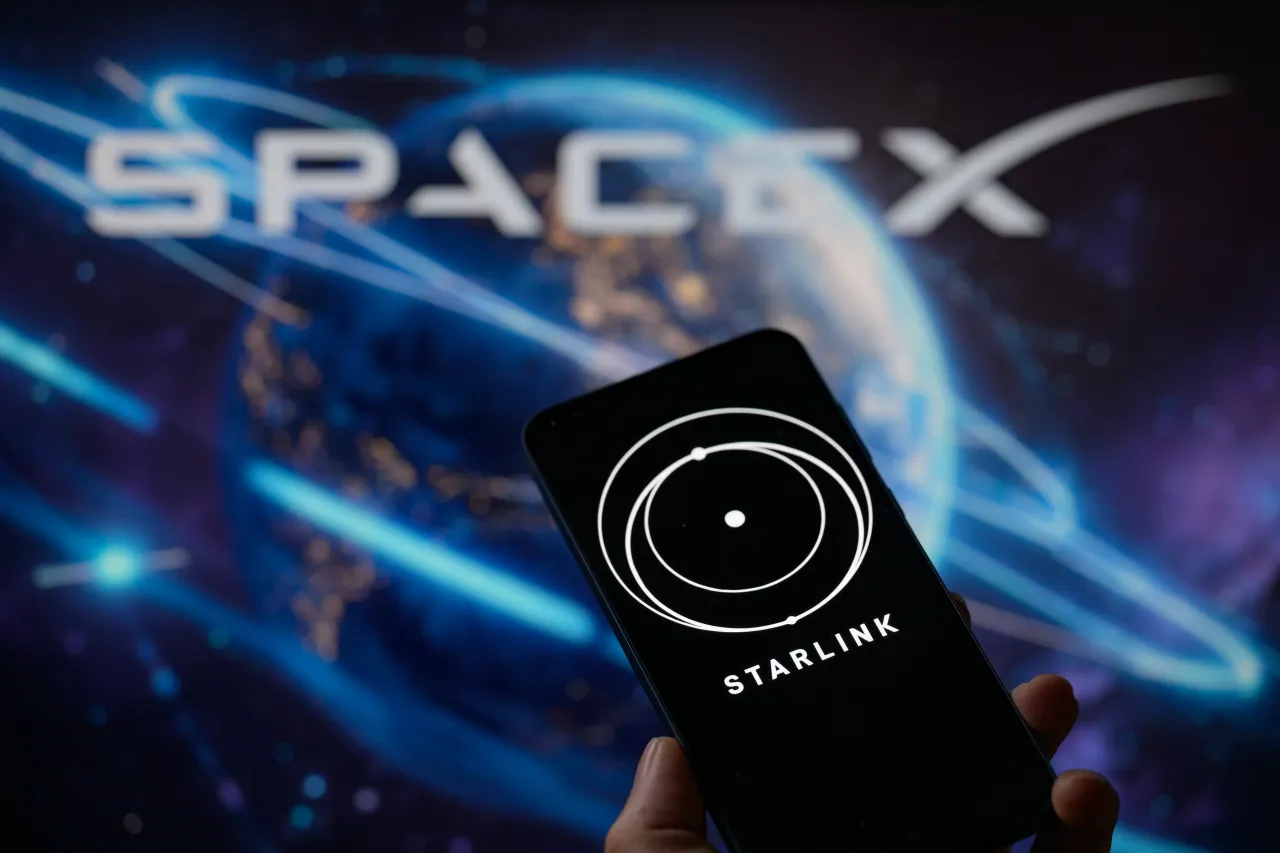Advertisement|Remove ads.
SpaceX’s Starlink Launches $40 Internet Plan To Take On Fiber Giants AT&T And Verizon

- Starlink currently has over 8 million customers worldwide and is expanding operations rapidly.
- The plan will cover large parts of California, Oregon, Arizona, and New Jersey, among others.
- It has yet to roll out the plan nationwide.
Starlink, the satellite internet provider owned by Elon Musk’s SpaceX, unveiled a new, cheaper residential plan in the U.S. for customers as it seeks to end the dominance of fiber optic-based internet providers.
How Much Will The New Plan Cost?
SpaceX priced the “residential 100” plan at $40 per month, with unlimited data and a 100 Mbps speed cap. The company will also not charge anything for the kit and installation. Starlink’s other plans cost $80 and $120 per month in the U.S. The plan will cover large parts of California, Oregon, Arizona, and New Jersey, among dozens of other states, but has not been rolled out nationwide.
The affordable plan puts Starlink in direct competition with the likes of AT&T and Verizon, which provide fiber-optic internet, to gain more customers in rural areas. As per AT&T’s website, its fastest AT&T Fiber service starts at $55 per month, while Verizon’s 5G Home Internet plan starts at $35 per month, only if customers also have qualified mobile plans.
“Super good Starlink internet deal available in parts of the US that are not already at full capacity!” Musk wrote on X.
What Are Stocktwits Users Saying?
Retail sentiment on Stocktwits about Verizon and AT&T was in the ‘bearish’ territory at the time of writing.

Race For Expansion
As per USTelecom, a group that represents broadband firms, U.S. businesses invested $89.6 billion in U.S. communications infrastructure in 2024. “The continued strong pace of investment, topping $2.2 trillion since 1996, underscores broadband’s essential role in powering the U.S. economy at the dawning age of artificial intelligence,” the group said in its annual broadband report.
Starlink currently has over 8 million customers worldwide and is expanding operations rapidly. Governments worldwide are increasingly turning to satellite internet providers to enhance connectivity in remote areas without fiber infrastructure. The firm provides services in over 150 countries.
The company already has over 8,000 operational satellites in Earth’s lower orbit, by far the largest such constellation, and it is only growing. On Monday, a Falcon 9 rocket launched from NASA's Cape Canaveral Space Force Station at 10:21 p.m. ET, carrying 29 of Starlink internet satellites.
For updates and corrections, email newsroom[at]stocktwits[dot]com.












/filters:format(webp)https://news.stocktwits-cdn.com/large_Tether_2376a55503.webp)
/filters:format(webp)https://news.stocktwits-cdn.com/Anushka_Basu_make_me_smile_in_the_picture_b92832aa_af59_4141_aacc_4180d2241ba8_1_2_png_1086e0ed8c.webp)
/filters:format(webp)https://news.stocktwits-cdn.com/large_robert_kiyosaki_d28a01cb4b.webp)
/filters:format(webp)https://news.stocktwits-cdn.com/large_Bitcoin_and_Ethereum_2b4356b70a.webp)
/filters:format(webp)https://news.stocktwits-cdn.com/large_Getty_Images_976546456_jpg_42ddd4a81d.webp)
/filters:format(webp)https://news.stocktwits-cdn.com/large_Getty_Images_2259655311_jpg_20124bbeb9.webp)
/filters:format(webp)https://news.stocktwits-cdn.com/large_Donald_Trump_451371e34e.webp)